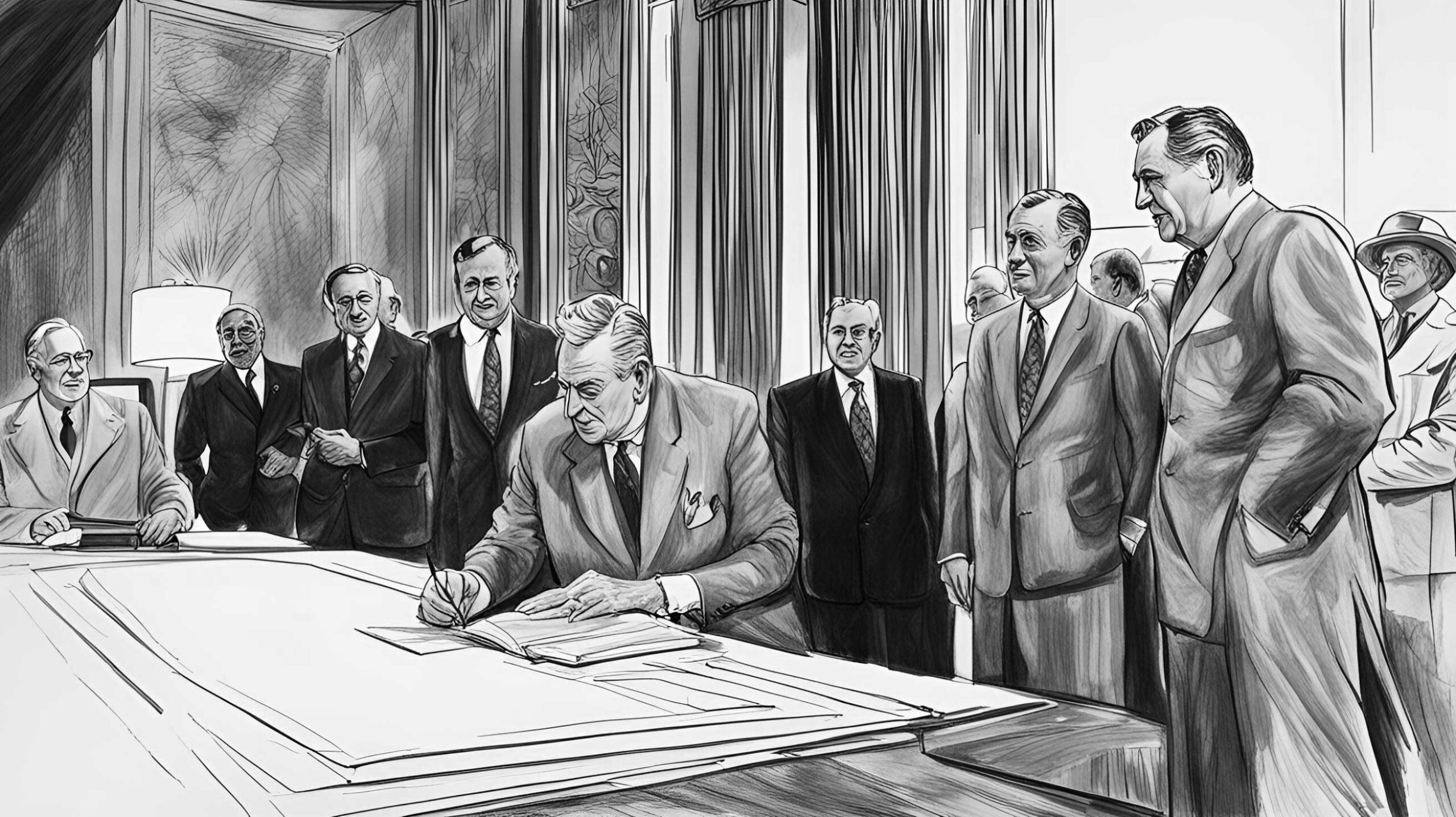Flashback to December 26
American History

Today, we delve into a significant moment in United States history that occurred on September 29, 1983. It marked the first time the US Congress invoked the War Powers Act, a momentous event that underscored the government’s commitment to checks and balances in matters of military engagement. This distinct event brought a seismic shift in American military policy and is a significant focus for historians, political scholars and students of American history.
The War Powers Act, officially known as the War Powers Resolution, is a federal law intended to check the United States president’s power to commit the nation to an armed conflict without the consent of Congress. This legislation became law in 1973 following supermajority, two-thirds vote in both the House of Representatives and the Senate—bypassing President Nixon’s veto.
Flash forward ten years later, in 1983; the tensions in the Middle East began to exert a notable impact on global diplomatic relationships. Lebanon, specifically, was grappling with an intricate, full-scale Civil War involving a multitude of factions, giving the global powers a run for their money on the diplomatic plane. The United States was not insulated from this conflict and indeed would become deeply entwined with the unfolding drama.
On September 29, 1983, amidst escalating tensions in the Middle East, the United States Congress made an unprecedented move, invoking the War Powers Act for the first time – a moment etched in the annals of American history. This action represented an attempt by the legislative body to curb executive power, specifically to restrain the President’s capacity to commit US forces overseas without congressional consent.
This judicious use of the War Powers Act testified to the intended purpose of the legislation. It provided tangible evidence that the US Congress held the authority and indeed the responsibility to oversee and restrain military commitments deemed too hasty, too extensive, or too harmful to American interests. This legislative constraint applied even in cases where the executive branch might argue for the necessity due to external threats or strategic considerations.
In invoking the War Powers Act, Congress set a precedent for potential future interventions in foreign military engagements. This monumental step highlighted the importance of balance and scrutiny in the decision-making process regarding military interventions. It reinforced the concept of congressional oversight over executive power, a cornerstone of the democratic process. This move accentuated Congress’s role as a safeguard against unilateral decisions on warfare that could significantly affect the nation and its citizenry.
Moving forward, the ramifications of Congress invoking the War Powers Act in 1983 still resonate today. It serves as a constant reminder that in the realm of military engagement and foreign conflict, executive power is not absolute. It underscores the enduring role of Congress in scrutinizing and balancing the executive’s war-making powers. The event stands as a testament to the importance of due process and decision-making in matters of war and peace.
In the broader context, this milestone event in 1983 continues to guide and inform today’s legislative proceedings, military decisions, and international relations policies. By casting a retrospective eye on this aspect of American history, current and future leaders, lawmakers, and citizens can better understand the values, principles, and structures that guide the United States when navigating the challenging landscape of global power dynamics.
the first invocation of the War Powers Act by the US Congress in September 1983 represents a significant moment in American political history. This event has undeniably shaped the nation’s military engagement policies and continues to echo through its legislative halls, serving as a powerful symbol of democratic checks and balances in practice.
We strive for accuracy. If you see something that doesn't look right, click here to contact us!
Sponsored Content

US forswears armed intervention…
On December 26, 1933,…

Wood-pulp paper first exhibited,…
Experience the historic milestone…

American Revolution: The British…
Experience the pivotal moments…

Harold B Lee, US…
"US Mormon Church leader,…

Maiden voyage of first…
Commodore Cornelius Vanderbilt set…

Federal government took over…
On December 26, 1917,…

